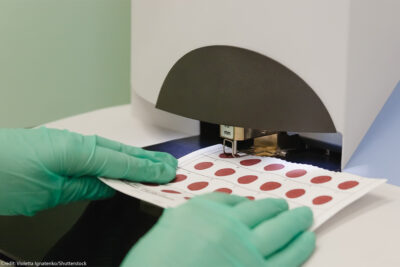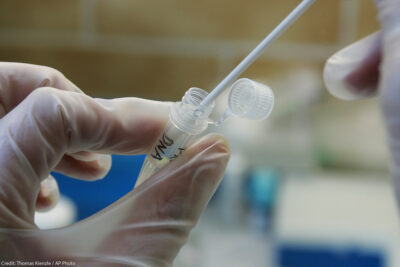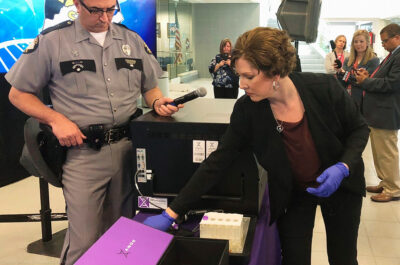DNA Collection
The ACLU works in courts, legislatures, and communities to defend and preserve the individual rights and liberties that the Constitution and the laws of the United States guarantee everyone in this country.

The Latest
Explore More
What's at Stake
Our DNA can reveal some of our most personal and private information. As genetic sequencing becomes faster and cheaper, there’s a growing risk of that information being collected and used against us or without our consent.
The ACLU has long fought to preserve the privacy of sensitive medical and genetic information. In Maryland v. King, we filed a brief in the U.S. Supreme Court opposing the drastic expansion of state DNA databases to include samples from people who have been arrested but not yet convicted.
We have also consistently opposed attempts to infringe on medical and genetic autonomy. In 1965, the ACLU filed a friend-of-the-court brief in Griswold v. Connecticut, a landmark Supreme Court case that struck down a state prohibition on the prescription, sale, or use of contraceptives and recognized a right to privacy surrounding intimate medical and family planning decisions. More recently, in Association for Molecular Pathology v. Myriad Genetics, the ACLU successfully persuaded the Supreme Court to invalidate patents on two gene sequences associated with hereditary breast and ovarian cancer, thus removing barriers to scientific research and treatment.
Our DNA can reveal some of our most personal and private information. As genetic sequencing becomes faster and cheaper, there’s a growing risk of that information being collected and used against us or without our consent.
The ACLU has long fought to preserve the privacy of sensitive medical and genetic information. In Maryland v. King, we filed a brief in the U.S. Supreme Court opposing the drastic expansion of state DNA databases to include samples from people who have been arrested but not yet convicted.
We have also consistently opposed attempts to infringe on medical and genetic autonomy. In 1965, the ACLU filed a friend-of-the-court brief in Griswold v. Connecticut, a landmark Supreme Court case that struck down a state prohibition on the prescription, sale, or use of contraceptives and recognized a right to privacy surrounding intimate medical and family planning decisions. More recently, in Association for Molecular Pathology v. Myriad Genetics, the ACLU successfully persuaded the Supreme Court to invalidate patents on two gene sequences associated with hereditary breast and ovarian cancer, thus removing barriers to scientific research and treatment.



